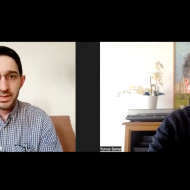The upcoming Libyan elections provide a real opportunity to cool the heat of the conflict in North Africa, and transfer it from one level to another, revealing the true political weight of all parties, assuming that the elections are held in a peaceful manner that reflects the will of the Libyan people.
Allegations and maneuvers
There are allegations and maneuvers that pave the way for not recognizing the results of the elections in the event that certain parties lose the battle. There are threats from some parties to combat the Libyan elections or to ignite bloody battles with flimsy claims with the aim of removing the legitimate cover before it starts, for fear of a heavy loss that might cancel the political presence of these parties.
Until the moment, and in light of the current situation, there are expectations from many that the elections may not be held in light of this deteriorating security situation, which, if it happens, will put Libya in the heart of hell.
Elections in Libya, whatever the reservations and whatever mistakes, provide a real opportunity to move the country from a situation of chaos and conflict to the square of stability and construction, no matter how imperfect.
The current situation, which is characterized by division and insecurity, in which all parties dispute a legitimacy that does not exist on the ground, is not in the interest of Libya and the Libyans, and also not in the interest of all regional and international parties, regardless of the contradictions between them.
Opportunities and challenges
Just as the elections provide an opportunity, their results pose many challenges.
The elections in Libya could result in several scenarios, the most optimistic of which is the smooth handover of power. However, the current artificial controversy over the articles of the electoral law and the restriction of candidate lists keeps the country in the square of institutional division, which was the main reason for the disruption of the country’s transition to stability during the past few years.
What feeds into this scenario is the groups that champion a political candidate may not accept his removal or defeat. There are many examples of this. It is expected, for example, that the Libyan National Army and its supporters will refuse to remove General Khalifa Haftar from running in the elections, or even lose.
At the same time, Islamist-oriented groups may prepare the grounds for their controversy over election materials and procedures to reject any results that may not be in favor of their candidates for parliament or the presidential race.
This scenario may develop into a “military conflict”, in which power may be contested after the results are announced based on the military power or positions of the unsuccessful competitors.
The last scenario, which could lead to a new state of chaos, is the victory of a controversial and divisive figure such as Saif al-Islam Gaddafi. If this happens, he is not expected to succeed in reuniting the Libyans or even leading the country. However, this scenario is not out of the question.
Regardless of the chances of any of these scenarios being realized, this election is a battle in a different style between political dinosaurs that decided to temporarily stop fighting among themselves, in order to achieve what they aspire to through the ballot box.
A double-edged sword
However, this battle is a double-edged sword. At a time when this conflict, whatever its outcome, threatens the future of Libya, this particular battle may be the only opportunity for the Libyan people to cool the heat of the political and security scene.
Many of the candidates were either corrupt, criminals, seekers of power for personal purposes, or tools in foreign hands. Therefore, their continuation in the political scene, in any form, complicates it.
They lost the justification for their existence even before the elections, with their positions that caused the destruction of Libya by giving priority to their personal interests and their insistence on incompatibility. Elections may be the stage of “cooling”, if the Libyans want it to serve as such.
Some of the candidates do not whet the appetites of Libyan voters. Some face charges of war crimes from the International Criminal Court, and others face US sanctions. Some of them are also suspected of corruption. Others overturned the choices of Libyan voters before, or tampered with the legitimacy of state institutions.
Each of them has motives and sources of strength that would encourage him to demolish the temple on its own if he loses the election. One of the candidates wants to evade prosecution for the crimes he has committed, the second is holed up behind a military force that provides them with support to the point of tempting him to refuse to acknowledge the results. The third is empowered by foreign powers that will provide the support for him if they see the results as not in their favor.
Back to square one
The UN-led political settlement, which cemented a ceasefire in the war and paved the way for elections, excluded leaders holding temporary positions from running for permanent positions.
The Election Commission ignored that, much to the chagrin of almost everyone, including the negotiators who painstakingly put together the February agreement.
Another defect of the agreement is that it left the powers of the presidency and the eligibility conditions of candidates without specifying rules or restrictions, such as not allowing war criminals to run for office.
Regardless of the logistical difficulties in organizing elections in that unstable country, the lack of commitments to provide observers puts the Libyan elections in the wind in light of the absence of a guarantee that everyone will recognize their results locally and internationally.
This strange and controversial situation that hangs over the elections will open the door for the return of weapons again, bringing us back to square one in the endless chaos of this North African country.
No favorite candidate
Given the importance of Libya’s stability to a large country, Egypt, at least in terms of security, it would be a mistake to think that Egypt might support a particular candidate to win the presidency.
It is true that Cairo is opening channels of communication with all candidates who may have real chances of winning the elections. But it is also true that it does not have a favorite man.
The Egyptian administration believes that the victory of a candidate affiliated with a certain regional party will only lead to the outbreak of a new cycle of violence that begins with the announcement of the election results. Although Cairo communicates with everyone, it prefers the victory of a candidate who has local and international acceptance, provided that at the same time he is able to unite the Libyans behind him.
Cairo realizes that what is more important than the victory of a particular candidate is that the elections take place in an atmosphere that does not spoil them. Therefore, Egyptian Foreign Minister Sameh Shoukry stressed more than once, especially during his meeting with his American counterpart Anthony Blinken last month, the necessity of the withdrawal of all foreign forces and mercenaries from Libya.
During an interview with an Egyptian source closely related to Cairo’s efforts in dealing with the Libyan crisis during the past few years, the source confirmed that all the names promoted in the media as having explicit or implicit Egyptian support do not reflect Cairo’s position.
“Egypt is aware of the rapid volatility of Libyan public opinion regarding this or that name, and fully understands that the issue goes far beyond names in light of complex regional and international accounts” the source said.
Another source, who spoke on condition of anonymity, said that Egypt is arranging its cards in this matter on the basis of its interests.
“Explicit or implicit support for a particular person means that Cairo is gambling with its strategic interests in Libya. The sensitivity of Egyptian interests and the speed with which the Libyan scene can develop before or even after the elections make it necessary not to bet on anyone” the second source said.
The source pointed out that Egypt has open channels of communication with all major candidates, even those affiliated with parties which are not on good terms with Cairo.
According to a third well-informed source, Egypt’s, or any other regional party’s, support for a particular candidate represents a political sin that the major countries cannot bear.
The source emphasized that Egypt always attaches greater importance to the completion of the elections on time and with the best conditions that enable the Libyans to choose those they trust in their ability to lead the country towards stability.
In my view, the perspectives of these three sources is completely consistent with Egypt’s recent approach to dealing with the crisis, as it took a clear distance from those affiliated with it without severing with them so that their chances would not be damaged due to the hostility of some to Cairo, but at the same time, it built bridges with all political forces in the south and west Libya.
The first source said that Egypt’s only bet now is that the elections will be the beginning of political system that shares Egypt’s security priorities to achieve stability on its borders, provided that it is accepted internationally and locally.









Leave a Reply